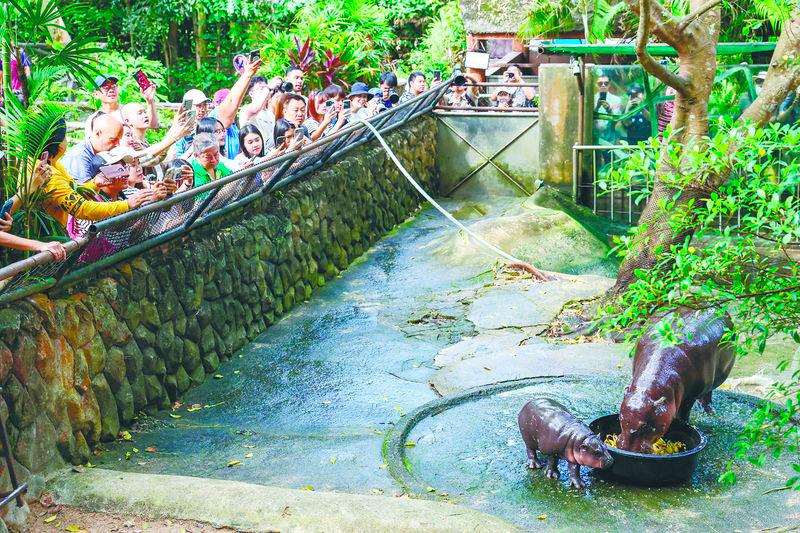BABY animals are adorable, and Moo Deng, the baby pygmy hippo at Khao Kheow Open Zoo in Thailand, is no exception – this little hippo is winning hearts worldwide. However, behind every zoo birth, including hers, lies a complex reality filled with challenges and concerns.
Moo Deng was born in captivity and will remain confined for the rest of her life. Her birth does little to aid the struggling wild populations of pygmy hippos.
Pygmy hippos are shy creatures that prefer solitude. Even the young stay close to their mother for only six to eight months before venturing out on their own.
They are nocturnal animals who typically pass their days wallowing in rivers and swamps before venturing out at night to find food. Being on display all day long with no privacy or autonomy can be extremely stressful for them and may negatively impact their health.
Moo Deng is surrounded by onlookers, with visitors allowed to throw things at her. She seems to be constantly harassed by a “caretaker” focused on capturing content for the zoo’s social media posts. The distressed baby hippo has bitten a handler but her plea to be left alone is still ignored.
The Khao Kheow Open Zoo’s affiliation with the World Association of Zoos and Aquariums (Waza) holds little significance as Waza is a member organisation that does not require accreditation. Businesses simply pay a fee to join and are allowed to set their own “standards”.
Caging animals will not save their species. A study published in the Journal of Applied Ecology concluded that protecting animals in the wild – rather than breeding them in captivity – is the most effective way to support population growth.
The project’s lead researcher warned, “Captive breeding can reduce motivation and resources for conservation in the wild, with disastrous consequences”.
Keeping animals in zoos does not foster respect for them in the wild. They continue to be hunted, poached, harassed and captured for display, leading to the decimation of their populations.
The global zoo community must shift its focus from breeding to addressing the root causes of animal endangerment – namely, human encroachment on habitats, poaching and the “exotic” animal trade.
Everyone who cares about animals and respects their right to live as nature intended must turn away from zoos. We must collectively drive home the message that they do not exist to entertain humans.
Jason Baker
Senior Vice President
Peta Asia
Hong Kong









